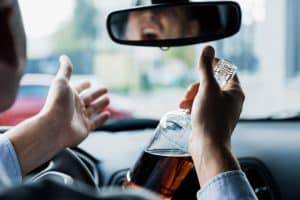Uncategorized
What If You’re In An Accident with a Drunk Driver?

Every state prohibits drivers from operating vehicles with blood alcohol concentrations (BAC) of 0.08% or more. For people under the age of 21, there are zero-tolerance laws in most states, so no amount of alcohol is considered legal.
When some have a BAC of 0.02 to 0.15, it can affect their behavior, coordination, speech, and judgment.
It’s estimated that one-third of traffic accident deaths involve drunk drivers in the United States.
For certain people, along with young people under the age of 21, there is also a zero-tolerance alcohol policy. For example, in most states, the Department of Transportation explicitly prohibits consuming alcohol for on-duty truck drivers.
Even with the laws and regulations in place throughout the country, people do drink and drive, and the following are some things you should remember and keep in mind if you find yourself in a collision with a driver you suspect is under the influence of alcohol.
Stay Calm
If you’re in an accident with someone you think is drinking and there are no major injuries, make sure that you stay calm. The other driver might not be in the right state of mind, so if you become extremely agitated or emotional, it could make the situation worse.
Take a deep breath so you can appropriately assess the situation and avoid triggering the person you believe is intoxicated.
Call the Police Immediately
Even in the case of a minor accident, it’s still always a good idea to contact the police and explain the situation. They can tell you what they’re going to do as far as responding or not. If you think the other driver is intoxicated, you need to tell the police on the phone because they need to come to the scene.
Try to avoid interacting with the other driver at all until the police arrive.
You may wonder how you can tell if a driver is drunk.
Before the accident, some of the red flags you could have seen include swerving, weaving in and out of traffic, driving under the speed limit, or suddenly stopping for no apparent reason. Other driving signs of intoxication include driving with no headlights, tailgating, or signaling erratically.
The driver themselves may smell like alcohol, or they could be stumbling or having a hard time standing up straight. Red, watery eyes, or slurred speech are other signs the driver could be under the influence.
Talking the Police
When the police arrive at the scene of the accident, don’t try to exaggerate or guess anything that happened.
Just give straightforward, concise, and honest answers.
You’ll need to describe what led you to think the other driver could be intoxicated. Your description is what’s likely going to determine whether the police do a sobriety test on the other driver.
When you’re talking to the other driver or the police, don’t admit any fault, even if you think you share some of the blame. Don’t apologize, and don’t say you aren’t hurt. Even if the other driver is under the influence of alcohol, these are things that could still be held against you by the insurance company.
Gathering Evidence
If you mention that you think another driver is intoxicated when you call the police, then they’re likely going to send someone, and that officer will do their own report but don’t rely on this alone as evidence.
Take pictures and video of the scene. If you can get a video of the other driver, try to do that but don’t confront them. If they’re highly intoxicated, they might not even realize what you’re doing when you take a video.
Take notes about the exact spot of the accident and the conditions at the time.
Before the police leave the scene, ask for an accident claim number.
Get Medical Attention
Once the police have come and gone and they’ve dealt with the other driver, you need to get medical attention right away, even if you don’t think you’re hurt.
There are a few reasons for this.
One is that you want to make sure you have a paper trail for your potential injuries if you have to deal with the other driver’s insurance company.
You also might not realize you’re hurt because the symptoms might not be obvious yet. Injuries that go untreated can lead to complications later on.
Talk to a Lawyer
You may assume that if the other driver was arrested for a DUI and then ultimately convicted, you’re automatically going to receive compensation for the damages you sustained because of the accident. That’s not necessarily the case, though.
Criminal liability for a drunk driving accident is entirely separate from civil liability.
Being in an accident with a drunk driver can be a serious situation, and you’re very likely going to need to hire an attorney rather than trying to negotiate with the insurance company on your own.
Your attorney can work with the drunk driver’s insurance adjuster to try and come to a reasonable settlement that’s fair for you. The role of an attorney, in this case, is to make sure you get all due compensation for pain and suffering, injuries, and lost wages. The insurance adjuster for the other driver, even if they were drunk, is going to fight compensating you as much as they can.
If your lawyer isn’t able to reach an aggregable settlement with the insurance adjuster, the case will go to court. If you were hurt by a drunk driver, it’s very likely that a judge and jury will sympathize with you. Insurance adjusters know this and, as a result, are going to try to keep the case out of court in most situations. The alternative to going to court would be settling, and most accident cases do settle outside of court.
























